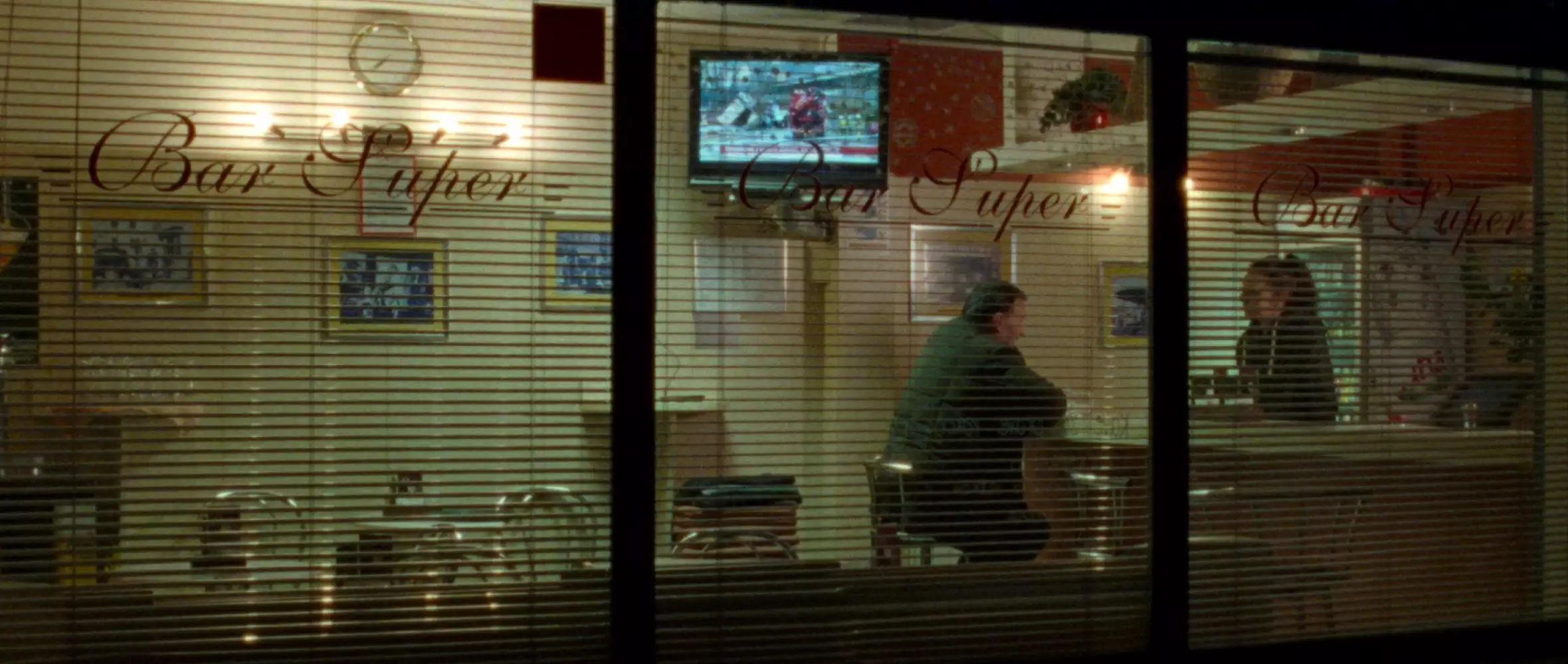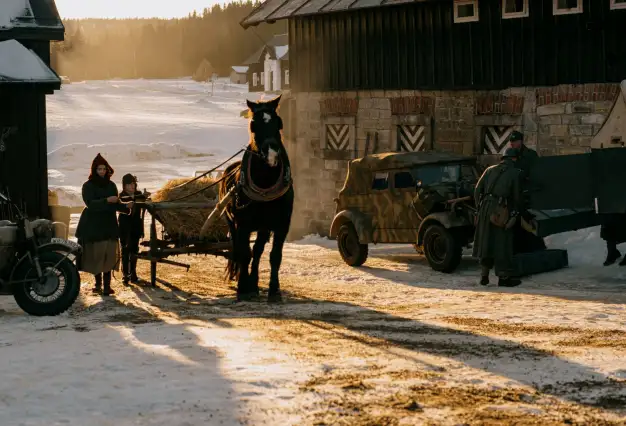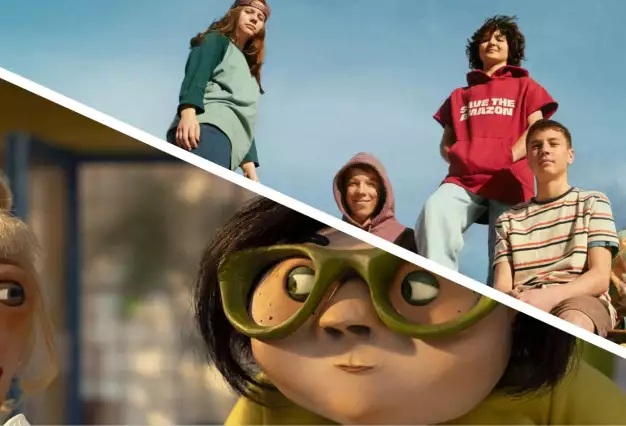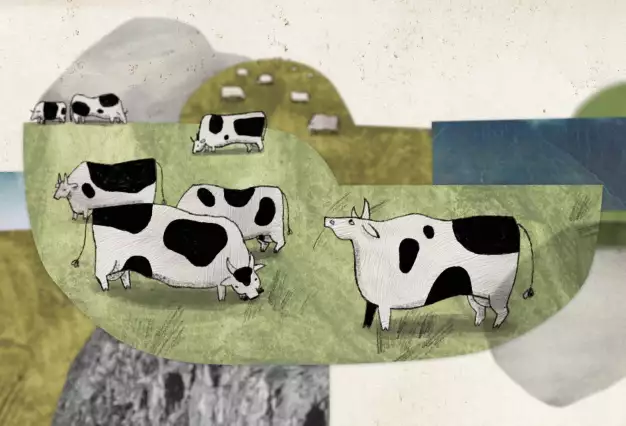
14 August 2019
Oroslan: A Stranger Brought Back to Life Through Stories
Oroslan: A Stranger Brought Back to Life Through Stories

The Locarno Film Festival presents the world premiere of Oroslan, the first fiction film by Slovenian director Matjaž Ivanišin. The film is a co-production between Slovenian company Staragara and Czech producer i/o post and was supported by the Czech Film Fund in a minority co-production scheme with EUR 30.769.
An interview by Markéta Šantrochová with Jordi Niubo, Czech co-producer of Oroslan
How did you come to embark on the project?
I had known producer Miha Crnec from Staragara for a few years and have always wanted to do a project with him; it's a “chemistry” thing. After seeing Matjaž Ivanišin’s great documentaries Karpotrotter and Playing Man, I was delighted to be able to work with him on his first fiction film, Oroslan.
What was your contribution to the project?
We did the complete visual post of the film including the 16mm scan, color grading, credits, mastering and deliveries.
How did the Czech financing of the project come about?
I am really grateful to the Czech Film Fund for supporting a foreign debut, an art house project that focuses on memories of a recently deceased man who used to live in a remote village in Hungary inhabited by a Slovenian minority. And it repaid the support, having been selected for Locarno IFF's concours Cineasti del Presente!
Are you planning any further co-operation with the Slovenian producer?
We hope to work together on many projects in the future! I believe this is the beginning of a long and exciting journey. We are currently developing a project with director Zdeněk Jiráský, I don´t like you anymore, which is most likely to be our next collaboration.
Your company was established as a postproduction studio, is that right?
Four of us co-funded the studio: two directors (Jaromír Pesr and I), and DOP (Michal Černý) and an editor (Michal Lánský), who left us early on to concentrate solely on editing. From the very beginning we aimed to produce our own projects, but we were overwhelmed by the demand for postproduction work from other filmmakers and we also had to develop technologically to be able to deliver the best results. That's why we had to put our original professions on hold and focus on the new tasks. We started in 2005 and our very first feature project was Toyen by the great director Jan Němec.
Although he may have been taking a risk by working with a newcomer post house, he was satisfied with the result and we later worked with him on two more films, including the first Czech 3D film, Heart Beat. Jan Němec was prepared to take risks until the very end of his life and I admire him for that.
On all the films we worked on at that time, until the cinemas in the Czech Republic underwent extensive digitization, we did the visual post including film recording (digital transfer to film). Incidentally, we still do film recording, one of a few studios in Europe (the last being Jan Švankmajer’s feature, Insect). We love emulsion, so we also scan 35mm and 16mm film but at the same time we have confidence in digital. We were the first to introduce digital RED cameras in the Czech Republic at a time very few believed in them.
What brought you back to production then?
Ownership of these technologies enabled us to step into local projects as minority coproducers. So, coproducing foreign films was a logical next step to becoming a little more self-sufficient. Like going back to our roots and developing our own projects. The first was Like in a Movie by Tomáš Svoboda, a conceptual experiment, a low-budget feature where we proved to ourselves that we could do it.
What projects are you working on right now?
This June saw the shooting of Halves, a project directed and produced by Ali Mosaffa, our second coproduction project with Iran, the first being A Very Ordinary Citizen by Majid Barzegar. We have been developing this project for more than 4 years.
Apart from I don’t like you anymore by Zdeněk Jiráský mentioned earlier (a Czech-Romanian-Slovenian coproduction) we are also developing Night of the Whale, a debut by Kaveh Daneshmand, which will be a coproduction between the Czech Republic, Poland, Canada and Iran.
At the same time, we look forward to working with Agnieszka Wasiak of Lava films on a Polish-Italian-French-Czech coproduction, Dry Land, directed by Agnieszka Woszczyńska, as well as on I Am an Artist by Albert Serra from Spain. We greatly enjoyed working on his The Story of my Death, which won the Golden Leopard in Locarno in 2013.
How do you choose projects for coproduction?
We try to work mainly with people we can trust, people we can respect and who respect us, people with similar values and similar priorities. Looking back I can say that the projects we developed or coproduced as minority coproducers have been solely auteur films. We are filmmakers, not businessmen, so it is quite natural that we prefer to create art over doing business.




